Dear Readers, How often do you eat cashew nuts? Maybe not often enough, the curved cores contain a lot of important ingredients for your health. In the following, you will find out where cashew nuts come from, what nutritional values they have, and how healthy they actually are.
The cashew tree: the origin of the cashew nuts
The cashew tree grows in tropical climates, for example in Brazil, and is also called cashew tree, cashew tree, or kidney tree. It grows fast, is evergreen, and copes well with drought and lack of nutrients.
The cashew fruit consists of two parts: in the lower part, there is a small, green, kidney-shaped fruit, inside which a cashew nut is hidden. A thickened fruit stalk forms above it, which is reminiscent of a pear or paprika, has an intense scent, and tastes sweet and sour. This part of the fruit is called the cashew apple.
Cashew apples are perishable and sensitive to pressure, so they are not suitable for long-distance transport. In the growing areas, cashew apples are processed immediately after harvest, for example, to make juice or jam.
The kernels of the actual cashew fruit come to us. From a botanical point of view, these are not nuts, but the pits of stone fruit. However, you don’t have to be that precise: In the vernacular and everyday understanding, cashews belong to the nuts.
Processing and roasting of cashews
Cashews are more expensive than other types of nuts. This is mainly due to their complex processing.
Each cashew fruit contains only a single kernel, and this also has to be laboriously extracted and processed. At the beginning of the process is the harvest. Cashew apples fall to the ground by themselves when ripe. However, they spoil very quickly. Therefore, many farmers do not wait for this point in time but harvest the fruits a little earlier.
After harvesting, the cashew fruits are removed from the cashew apples and dried to prevent mold and increase their shelf life. Traditionally, they are placed in the sun for a few days. Today, however, industrial processes with high heat are often used for drying.
Have you ever noticed that you can never buy cashews in the shell? This has to do with the fact that the shell contains a toxic substance and is very difficult to remove. Heat makes the shell more brittle and allows the harmful substances to evaporate. The cashews are therefore roasted or treated with steam to loosen the shell.
Very rarely there is also completely untreated cashew in raw food quality. That means they were heated to a maximum of 45 degrees. These cashews are the most nutritious. However, their processing is still significantly more complex and therefore more expensive.
Unfortunately, harvest hands and cashew roasters often work under very poor conditions and for minimal pay. Child labor is also not uncommon. Ideally, you should therefore buy fair trade goods.
Cashew nuts are so healthy
It is worth regularly including cashew in your diet because they are real powerhouses for your health.
Cashews as a source of protein
Protein is an important part of nutrition and is needed for all muscles, for example. People who are active in sports should pay attention to an adequate intake of protein. The problem, however, is that many sources of protein are of animal origin.
Proteins are found, for example, in meat, dairy products, and eggs. Anyone who completely or largely avoids meat and/or animal products has to make good use of plant-based protein sources. Cashew nuts contain over 15 grams of protein per 100 grams and are therefore an optimal source of protein.
Cashew nuts for your heart and cholesterol levels
Fat is not just fat: saturated fat is important for your body. They can regulate cholesterol levels, lower blood pressure and strengthen the heart and circulation.
Cashew nuts have a particularly high proportion of unsaturated and polyunsaturated fatty acids. They make an important contribution to your health.
Cashew nuts make you happy
L-Tryptophan is an amino acid associated with relaxation, contentment, and happiness. The “happiness hormone” serotonin can only be produced with tryptophan. If tryptophan is missing, depressive moods can develop.
However, the body cannot produce the amino acid itself, it must come from food. And this is where cashew nuts come in. They are one of the best sources of tryptophan.
Cashew nuts strengthen nerves, teeth, and bones
Cashews are high in magnesium and phosphorus. Both minerals are important for teeth, bones, nerves, muscles, and the heart. They also contain many B vitamins, which are also important for the hard structures of the body and for the heart.
Cashew nuts help with weight loss
Tryptophan not only has a mood-enhancing effect but can also help with rapid and healthy weight loss. In addition, cashew nuts contain a lot of fiber and ensure a good feeling of satiety without causing the blood sugar level to rise too much.
Compared to other nuts, they have fewer calories and fat. A handful of cashew nuts are therefore an ideal snack when you are hungry. However, it should not be much more; otherwise, the cashew nuts will hit your hips.
Cashew nuts strengthen the immune system
Your body’s defense system needs many different nutrients to function properly. These include, for example, zinc, iron, and magnesium. All three substances are contained in significant amounts in cashew nuts.
Cashew nuts make you fit and focused
A lack of B vitamins leads to exhaustion, tiredness, and concentration problems. Cashew nuts help you to get enough B vitamins.
Cashew nuts and allergies
Allergies to cashew nuts are rare, but then they can be all the more severe. If you suffer from a cashew nut allergy, you have to reckon with even more severe symptoms than with a peanut allergy. Shortness of breath, drop in blood pressure and heart and circulatory problems are possible.
Anyone who is already allergic to peanuts or hazelnuts could also have a cashew allergy. So if you react to the consumption of cashew nuts with noticeable symptoms, you should definitely speak to your doctor and refrain from experimenting on your own.
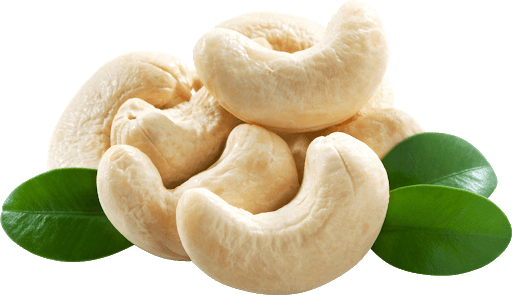
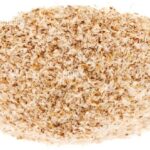

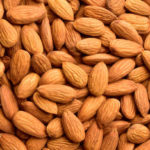
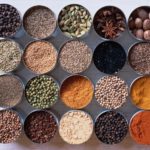
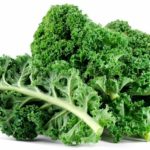

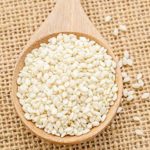





[…] by its many healthy fatty acids. A total of 93 grams of unsaturated fatty acids are in the healthy oil. Most of these are monounsaturated fats, but mustard oil also contains some essential […]